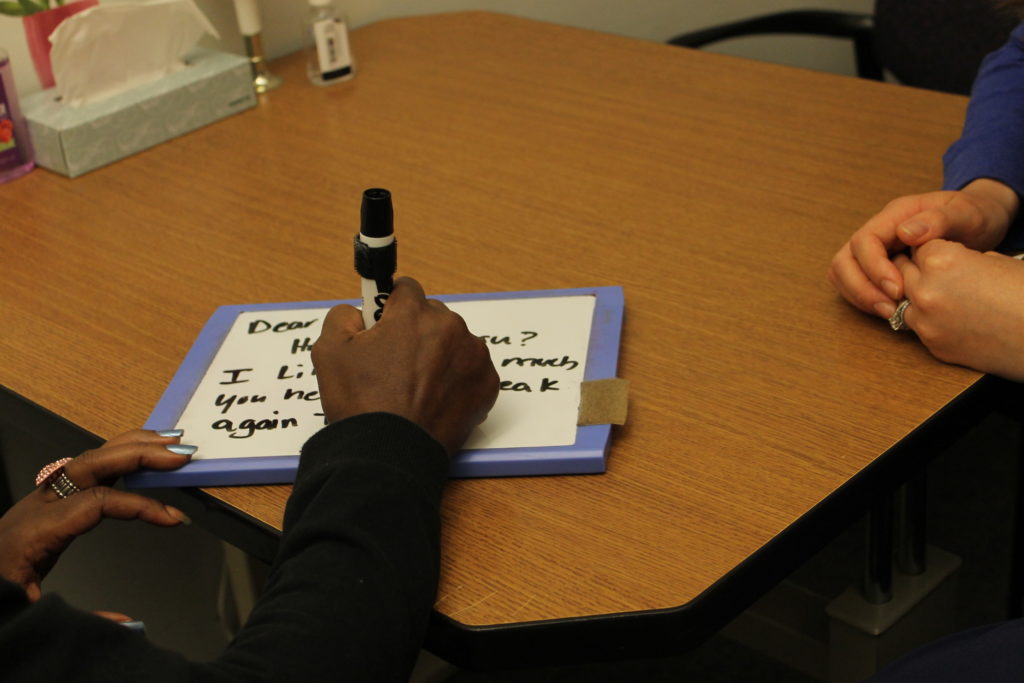Happy June! While the month of June is most often associated with the start of summer, it is also National Aphasia Awareness Month. Aphasia Awareness Month began as a national campaign to increase public awareness about what aphasia is and to assist in recognizing the numerous people who are living with and/or caring for someone with the disorder. We still have a long way to go in spreading awareness and education about what it means to live with aphasia. Today, I am excited to share with you some information about what aphasia is, how it is caused, whom it affects, and how it is treated.
What is aphasia?
Aphasia is one of the most significant and common conditions caused by stroke or brain injury. It is the loss or impairment of ones ability to use or comprehend words. It usually results from brain damage to the left part of the brain (where most people store their language). Aphasia can result in difficulty speaking, understanding, writing, and/or reading. People with aphasia can also have difficulty with performing mathematical functions. An important thing to remember is that aphasia is a loss of language and not intellect, and affects each individual in a unique way.
Who is impacted by aphasia?
- Over 1 million people in the United States are currently affected by aphasia according to the National Aphasia Association.
- Nearly 80,000 Americans acquire the disorder each year.
- Up to 2 million individuals in the U.S. may acquire aphasia by 2020.
- Aphasia affects people of any age, race, nationality, and gender.
- Stroke is the most common cause of aphasia (85%) but it can also be caused by traumatic brain injury, brain tumors, degenerative disease, and metabolic changes.
- 25-40% of stroke survivors have aphasia.
How does aphasia impact a person’s daily living?
Being diagnosed with aphasia can impact an individual’s day-to-day life in many ways. The little things that we do each day without thinking about can be extremely difficult and overwhelming for someone living with aphasia. Imagine being unable to order your favorite drink at Starbucks, read the morning paper, or even sign your name. Aphasia affects every person differently depending on the severity of their injury and what part of the brain was affected. While someone may have mild difficulties “thinking of the right word,” another person may have severe difficulties, feeling like they are in a foreign country and unable to speak the language.
Who plays a role in recovery?
- Speech-Language Pathologists (SLP’s): Also known as “speech therapists,” SLP’s are highly trained professionals that evaluate speech and language disorders and offer therapies to remediate them.
- Other professionals: including physicians, occupational therapists, and physical therapists
- Caregivers: Family, friends and significant others play an important role in assisting those with aphasia and helping them to make the most of their recovery.
Did you know?
- People with aphasia CAN improve their functional communication skills.
- 8-10 hours of treatment per week has been shown to improve a patient’s progress, compared to those not receiving consistent treatment.
- Support groups have been shown to help people with aphasia by offering guidance, tips and emotional support. There are more than 600 support groups for stroke and aphasia in the United States!
To learn more about Magee’s monthly Aphasia Support Group, contact Sarah Lantz at SLantz@mageerehab.org or Ashley Owens at AOwens@mageerehab.org. Meetings are held the first Tuesday of every month.
For more information on aphasia, check out these resources:
